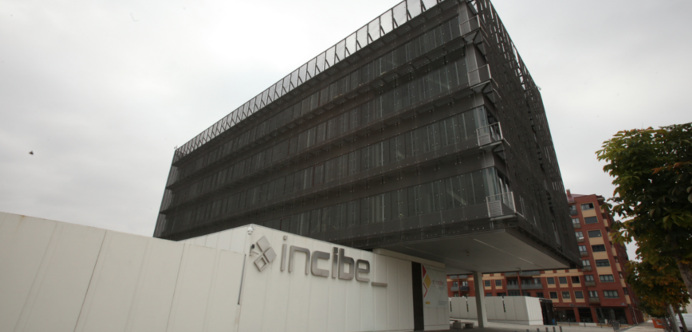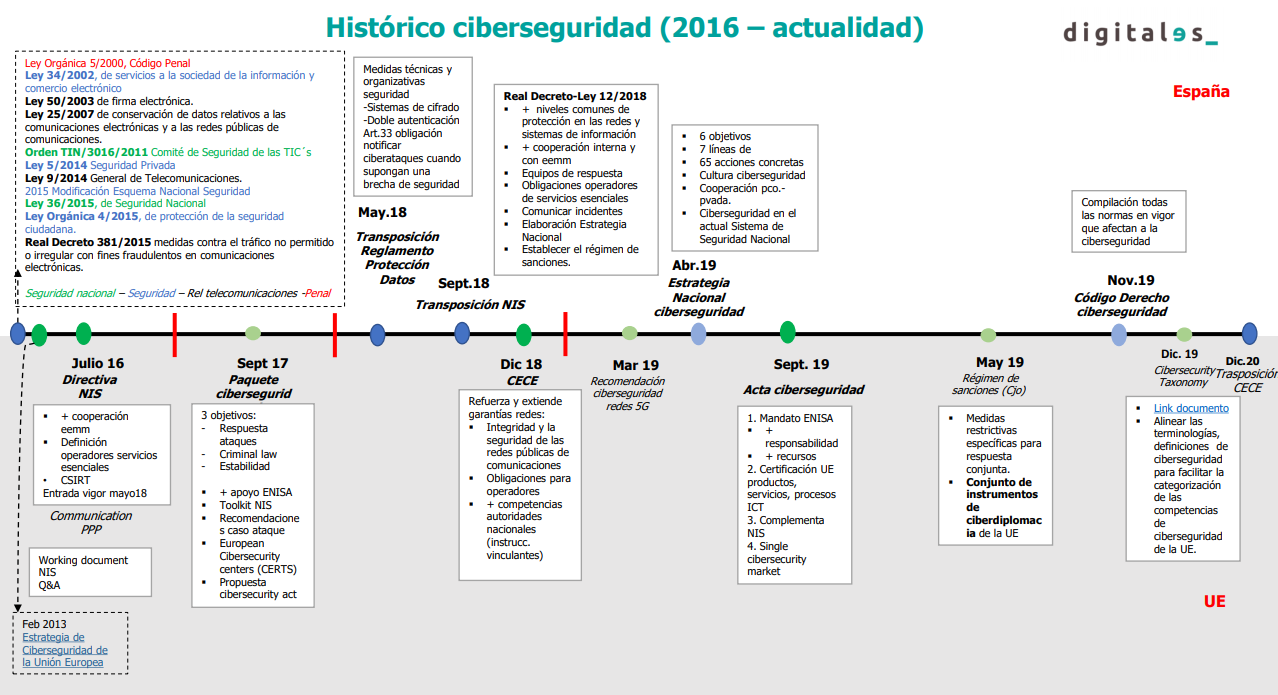25/06/2020
It was in the early days of 2019 when Alicia Richart, CEO of DigitalES, learned in an office of the European Commission’s Directorate General responsible for managing the Digital Agenda (DG Connect) about the plans regarding the European Cybersecurity Center. From there, aware that this was a great opportunity for Spain to acquire political and geopolitical weight, he began a round of talks to ensure that Spain would be the country chosen to host the European Cybersecurity Center.
From that moment on, contacts were made with national and European institutions in order to have this center, which will allow us to be a State of reference in an area in continuous growth. The data is conclusive: cybersecurity has experienced a 7% growth in revenue volume during 2019 and is expected to increase by 15% throughout 2020.
The city of León, where the center could be located, is already an important hub for information technology and cybersecurity and is home to the headquarters of INCIBE, the National Cybersecurity Institute, which last year handled more than 100,000 incidents related to cyberattacks.

The European Cybersecurity Industrial, Technology and Research Competence Center (European Cybersecurity Industrial, Technology and Research Competence Center), will manage an investment of €2 billion between 2021 and 2027. All this would turn the European city into a «technological hub» of the first order, since all the cybersecurity policies of the European Union would be coordinated from there.
And not only that. Creating a leading cybersecurity center at the European level will generate an ecosystem of companies in this field that will only grow. This is a unique opportunity to invest in an area that will experience strong growth.
Although the relocation of the European Centre for Weather Forecasting, which could move from London to Barcelona, is also pending, it should be noted that cybersecurity is an area that is expected to grow exponentially in the coming years.
Even more so after the rapid implementation of telework caused by the coronavirus. During the state of alarm, telework increased from 5% to 34%, but cyber-attacks have increased threefold. And it was already an upward trend: in the first quarter of 2020 the number of cyberattacks had increased by 40 % globally, according to IBM data.
All of this means that, at present, cybersecurity-related job openings are not being filled. It is estimated that next year 1.8 million jobs related to this area will become vacant worldwide, 350,000 of them in Europe.

Leading technology companies are already working to address this scenario. Siemens and Telefónica have signed an agreement to offer comprehensive cybersecurity solutions to other companies throughout their value chain.
In the international sphere Siemens has created the ‘Cybersecurity Charter of Trust’, an alliance that promotes and fosters good practices in the field of cybersecurity, while Telefónica has promoted these aspects through ElevenPaths, the cybersecurity company that is part of the new Telefónica Tech.
Vodafone offers SMEs its advanced secure connectivity solution through a virtual private network (VPN) to improve collaborative work and secure telecommunications between sites and with teleworking employees.
For its part, Huawei considers cybersecurity to be «the company’s top priority.» In this regard, the company has more than 48 Common Criteria-certified devices worldwide, 25 of them in Spain.
The urgency of adapting legislation
The increase in cyberattacks also puts another debate on the table: the urgency of adapting legislation. In Europe, the current strategy dates back to 2013, a very distant date when we are talking about such a changing and dynamic environment as cybersecurity.
Many experts are already urging for a revision of the NIS regulation (approved in 2016) that also introduces new phenomena such as Internet of Things, little developed 7 years ago and vital today to ensure the security of all connections.
The EU has begun work on this revision of the NIS directive, which is expected to be accompanied by more measures in the short term to promote a common European cybersecurity that is now more necessary than ever. That it can be coordinated and directed from Spain is also a possibility that is becoming increasingly closer and, of course, given the data and the projection of this area, tremendously valuable.











